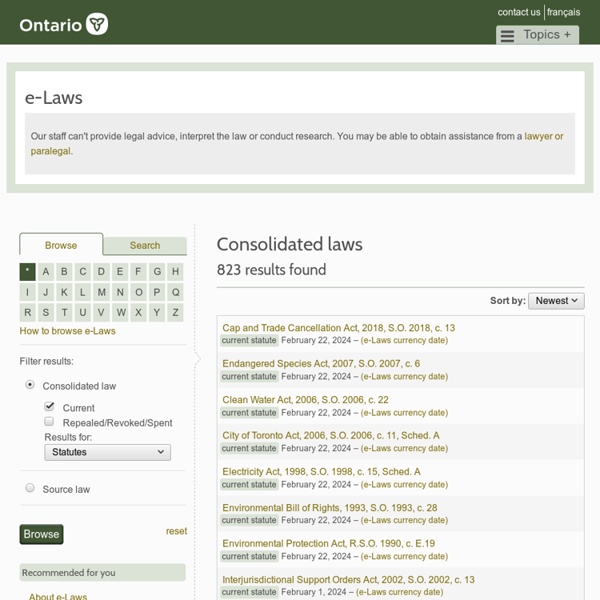



MAG says Crown liability changes defend taxpayers from ‘deep-pocketed lawyers’ The report by the independent legal reform organization was only an early, partial analysis of the Crown Liability and Proceedings Act, 2019, which just received royal assent in May. Courts will still need to determine the scope of the law, LCO Executive Director Nye Thomas told Law Times. The LCO report raised concerns about s. 11 of the CLPA, “Extinguishment of causes of action respecting certain governmental functions,” as well as s.17, “No proceeding for misfeasance, bad faith without leave;” s. 30, “Regulations and s. 31, “Transition.” WHAT DOES FMCSA’S ELD MANDATE MEAN FOR YOUR BUSINESS? Current legislation, FMCSA’s rule 395.15, states that drivers must log their duty status, whether they are operating the vehicle, or are on or off-duty. Furthermore, according to the United States Department of Transportation, these records must be readily available if requested by law enforcement. Drivers must be able to present their duty reports from the past seven days, plus the current day. What is the Electronic Logging Device Mandate? FMCSA’s 516-page ELD mandate, also known as the “Final Rule”, updated previous safety administrations to include sections on Hours of Service (HoS) and how electronic logging devices can make your drivers’ lives easier while remaining compliant with HOS.
The Canadian Bar Association : <em>Crown Liability and Proceedings Act 2019:</em><br /> Practice and Procedure OBA Administrative Law / Public Sector Lawyers PROGRAM | 12:00 PM to 2:00 PM The Crown Liability and Proceedings Act 2019 (CLAPA) revamps Crown liability in Ontario and the process for suing government in tort. To understand how CLAPA will affect your representation of clients, join our expert faculty representing both plaintiff and defendant perspectives, as they unpack the key takeaways from the legislation and highlight how your practice will change. Access to Information Act Short Title Marginal note:Short title 1 This Act may be cited as the Access to Information Act. 1980-81-82-83, c. 111, Sch. I “1” It Has Gotten A Lot Harder To Sue The Ontario Government - Government, Public Sector - Canada To print this article, all you need is to be registered or login on Mondaq.com. A key value in any free and democratic society is the principle that no one is above the law. In democracies, even the government can be required by the Courts to pay compensation to persons harmed by negligent or intentional government actions. However, thanks to the Crown Liability and Proceedings Act, 2019, which was buried in the Ontario budget bill passed in April, it has just gotten a lot harder for individuals and corporations to sue the Ontario government, government employees and government officials when their negligence or misfeasance has caused harm. In some ways, the Crown Liability and Proceedings Act, 2019 codifies what the settled common law already said about government liability – that the government cannot be sued for policy decisions or decisions on how, where and when to spend its money (For example see the 1989 Supreme Court of Canada decision in Just v.
Better Calf Stretching for Flat Feet - Fix Flat Feet Improving ankle flexibility was an important part of correcting my flat feet. Specifically, the motion I wanted to improve was ankle dorsiflexion. This motion is often limited by shortness of the calf muscles in the back of the leg. In this post, I’m going to go over some tips on stretching these muscles.
Things to consider before deciding whether to sue - Ministry of the Attorney General Back to Civil Cases - Suing and Being Sued in the Superior Court of Justice page The information provided below is offered to help you in your decision to make a claim if you do not have a lawyer. The information provided below is not legal advice, and it may not apply in every situation. Before making a claim, there are a number of factors you may want to consider, and a number of pieces of information you will need to collect. Water Therapy Exercise Program Water therapy exercise programs consist of a variety of treatments and exercises that are done in a pool and may be specifically designed to provide relief of low back pain or neck pain. These exercises also serve to condition and strengthen muscles to help avoid future recurrences of back pain. The leg lift, or leg raise, is a common water therapy exercise. See Water Therapy Exercises Water therapy exercise is especially helpful in cases where a land-based exercise program is not possible due to the intensity of pain, decreased bone density, disability or other factors. As such, water therapy is a versatile exercise and is particularly good for people with conditions such as: